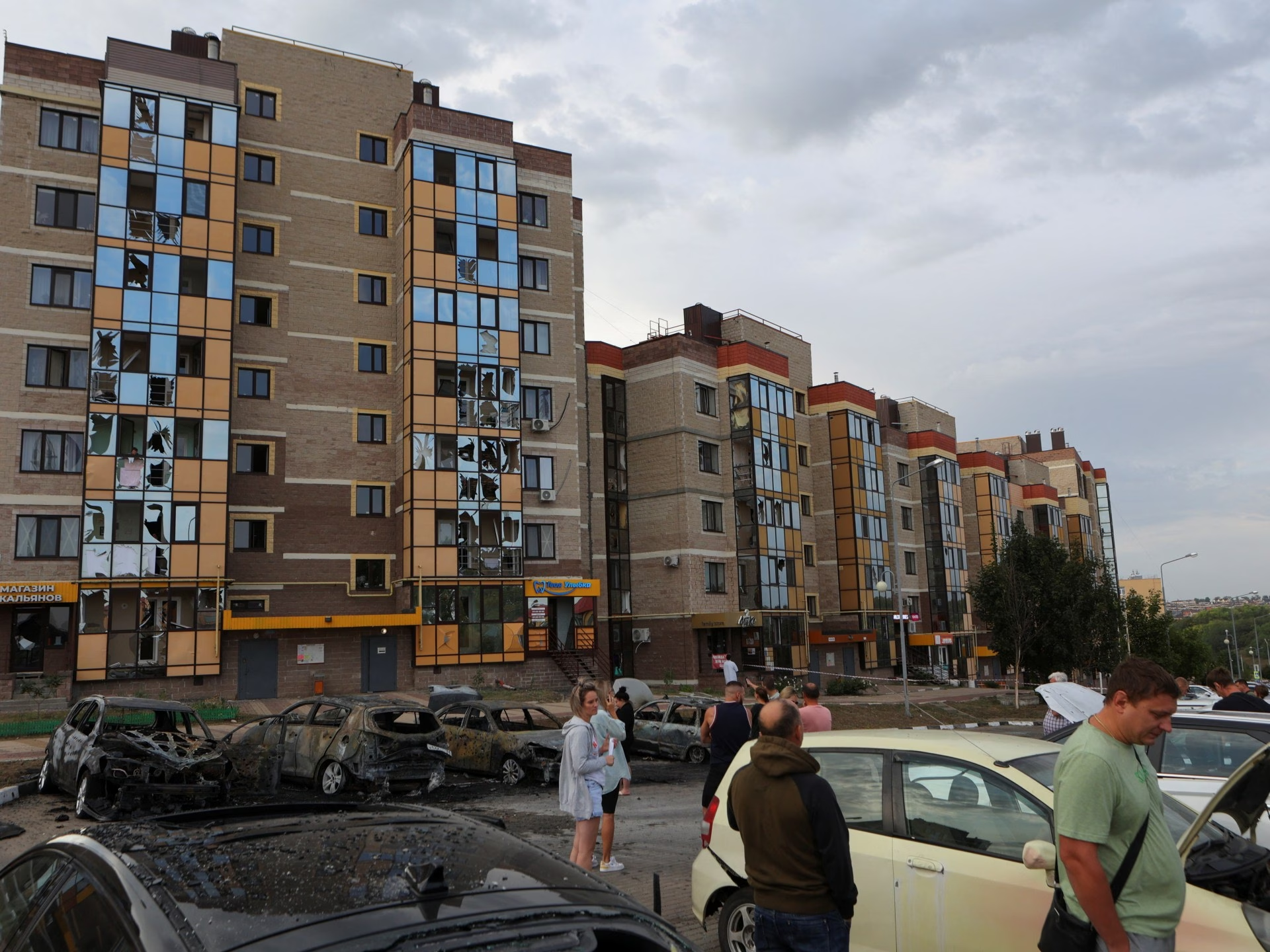Despite enduring heavy counterattacks, shelling, drone strikes, spring rains, wet ground, and a lack of life-saving foliage on the village’s surrounding trees, which would have concealed camouflaged soldiers, they have been launching attacks for days.
A war correspondent concludes, “The situation remains tense.”
What seems like a mundane, repetitive report from eastern Ukraine is actually a dispatch from pro-Kremlin war correspondent Yuri Kotyonok, covering the Russia-Ukraine war’s newest frontline in Belgorod, western Russia.
Located 700 kilometers (435 miles) south of Moscow, Belgorod is an area characterized by oak groves and iron ore mines.
Demidovka, the village at the center of the conflict, is a seemingly insignificant backwater with less than 300 inhabitants, where Soviet forces clashed with Nazi Germans during World War II.
Situated just a stone’s throw from the border with Ukraine’s northern Sumy region, where Russian forces failed to advance and retreated three years ago, Demidovka is also 50km (31 miles) north of another formerly occupied Russian town, Sudzha.
Ukrainian forces maintain control over approximately 100sq km (40sq miles) between Sudzha and the Ukrainian border and appear determined to establish a foothold in Belgorod, according to Ukrainian observers.
“This is not an offense. These are counterattacks aimed at diverting some Russian forces from the conflict in the Kursk region,” Volodymyr Fesenko, head of the Penta think tank in Kyiv, told Al Jazeera.
Ukrainian civilians or military officials have not commented on the Belgorod operation, akin to their silence regarding the May 2023 excursion by two small groups of Russians fighting for Ukraine.
These groups crossed into Belgorod, briefly capturing the village of Novaya Tavolzhanka, approximately 150km (93 miles) southeast of Demidovka. The unexpected takeover shocked the Kremlin, revealing the inadequacies of Russian border regions in preparing for such attacks, including misallocation of federal funds and failures in organizing civilian evacuations.
Analysts agree that Kyiv’s current Belgorod operation aims to create a buffer zone that would prevent Russian forces from crossing into Sumy or increase pressure on the strategically located eastern city of Pokrovsk.
“The Ukrainian forces do not want these forces advancing towards Sumy or appearing near Pokrovsk,” Nicolay Mitrokhin, a researcher with Germany’s Bremen University, told Al Jazeera.
The Belgorod operation is akin to a smaller-scale version of the Kursk offensive, which began in August, drawing tens of thousands of Russian soldiers away from the frontline in the eastern Donbas region.
“It would be beneficial to replicate Kursk, but we lack the necessary forces,” Lieutenant General Ihor Romanenko, former deputy head of Ukraine’s general staff of armed forces, said to Al Jazeera. “However, these asymmetric actions related to Kursk and Sumy force the enemy to stretch their forces and demonstrate our ability to create buffer zones.”

Moscow responded to the operation by shelling Sumy’s administrative center on Wednesday, damaging a school and several apartment buildings and wounding at least 99, including 17 children, according to officials.
The Belgorod operation serves as a stark reminder to Moscow that Ukraine is capable of calculated strikes on Russian soil, especially as the Kremlin hesitates on negotiations for a proposed 30-day ceasefire by US President Donald Trump.
Talks in Saudi Arabia’s Riyadh lasted for 12 hours, with both sides agreeing on March 25 to halt attacks on vessels in the Black Sea and on energy infrastructure.
On Tuesday morning, the battle-weary village of Demidovka was nearly deserted as a Russian war correspondent admitted that it had been overrun by Ukrainians.
. “Russian servicemen missed the moment when the enemy demined the road and dismantled the dragon’s teeth,” pro-Kremlin war blogger Vladimir Romanov wrote on Telegram, referring to antitank fortifications. Another Russian war reporter attempted to find a positive outcome, stating, “Yes, it will result in the distraction of some of our forces and meanwhile, multiply enemy losses as they have to advance in very uncomfortable conditions.”
Moscow commented on the Belgorod operation on March 18, claiming it “thwarted a provocation” in Belgorod prior to a phone conversation between US President Donald Trump and Russian President Vladimir Putin.
Ukrainian servicemen expressed their satisfaction with the operation. “The one who reaps the wind will have his face smashed in,” Kirill Sazonov, a Ukrainian political analyst-turned-soldier who fought in Kursk, commented on his Telegram channel.
Reports of looting emerged amidst the chaos, including Russian soldiers allegedly looting 24 houses in the village of Repyakhovka, 15km (9.3 miles) south of Demidovka. “Our servicemen are doing such a good job, they protect us by breaking into other people’s houses,” a local told the Pepel Belgoroda Telegram channel.







